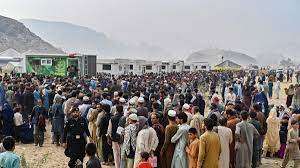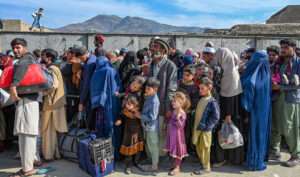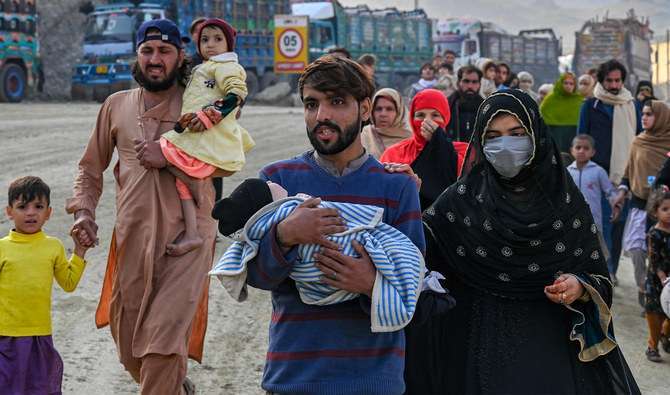The decision by Pakistan to set a November 1 deadline for all legal immigrants, including Afghan Citizens, to exit the country has highlighted the formidable task of repatriation. Afghan nationals residing in every province, city, and town across Pakistan present multifaceted difficulties for the government.
A Humanitarian and Socio-Political Dilemma
Afghan refugees have found homes and communities in different parts of Pakistan over the past decades, becoming an integral part of the social fabric. From urban centers to remote towns, Afghan citizens have established roots, making deportation more than just a logistical problem.
Human rights organizations and the United Nations have raised concerns, calling for a reconsideration of the deportation deadline, citing the non-refoulement principle, which prohibits the forced return of individuals to places where they may face persecution.

International Cooperation and the UK’s Role in Resettlement
The delicate situation of Afghan nationals who had previously worked with coalition forces in Kabul adds another layer of complexity. The joint effort between British and Pakistani authorities to transport a specific number of Afghan refugees to the UK through special flights is a positive step in addressing the humanitarian crisis.
Operating 12 special charter flights, accommodating around 2,000 Afghans, demonstrates the commitment of the UK to expedite the resettlement of Afghan nationals who have faced considerable uncertainty and administrative challenges. It showcases the power of international cooperation in solving complex challenges.
The Symbolism of the First Departure of Afghan Citizens
The first of these flights, scheduled for departure on October 26 from Islamabad, serves as a symbol of compassion and support. The road ahead remains arduous, with the logistical intricacies of executing these flights, ensuring the secure and dignified transfer of refugees, and their integration into British society as significant hurdles that need to be overcome.

The Global Responsibility to Protect and Provide
Nations must come together to find humane and practical solutions. The world is interconnected, and our collective responsibility to protect and provide for those displaced by conflict and instability transcends borders and politics.
The deportation of Afghan citizens in Pakistan is not just a logistical issue; it’s a testament to the complexities of global challenges that demand collaboration, compassion, and innovative solutions. As the world grapples with crises and conflicts, nations have to find compassionate and cooperative ways to address the needs of the vulnerable.
The British Government’s Compassionate Example
The British government’s decision to offer asylum to Afghan refugees in Pakistan serves as an example of solidarity and empathy in a world that can sometimes seem daunting. It reminds us that, despite complexity and adversity, humanity can prevail, offering sanctuary and support to those in need.
FAQs:-
1. Why is Pakistan deporting Afghan citizens?
Pakistan has set a deadline for the departure of all legal immigrants, including Afghan citizens. This decision is driven by many complex factors, including ongoing conflicts and the need to manage immigration.
2. Why is the deportation of Afghan nationals a challenging task?
Afghan refugees have become an integral part of communities in Pakistan over the years. This poses logistical and humanitarian challenges, raising human rights concerns.
3. What is the non-refoulement principle?
The non-refoulement principle is a fundamental concept in international law that prohibits the forced return of individuals to places where they may face persecution, harm, or threats to their safety.
4. What role is the UK playing in the resettlement of Afghan refugees in Pakistan?
The UK government is collaborating with Pakistani authorities to transport a specific number of Afghan refugees to the UK through special flights. This initiative is aimed at addressing the humanitarian crisis.
5. What is the global responsibility in addressing displacement and migration challenges?
Displacement and migration are global issues that require cooperative and compassionate solutions. Nations have a collective responsibility to protect and provide for those displaced by conflict and instability.


